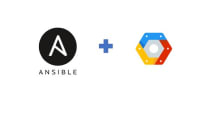Description
Ansible is an easy-to-use IT automation engine. It can transform and optimize tasks such as rolling updates with just a few lines of code. However, many organizations aren't using Ansible modules and playbooks in a reusable fashion; they are reinventing the wheel every time they automate. This training course introduces intermediate to advanced use cases for using the tool at scale
Syllabus :
- Welcome
- What you should know
1. Ansible Overview and Setup
- Ansible overview
- Environment setup
2. Task Execution Management
- Defining task execution with host groups
- Using tags to limit play execution
- Executing tasks on localhost
- Limiting plays from the command line
- Specifying variables via inventory
- Defining inventory dynamically
- Variables with dynamic playbooks
- Jinja and templates
- Host facts for conditional execution
- Looping tasks with variable lists
- Looping tasks with dictionaries
- Looping in templates with variable lists
- Looping in templates with dictionaries
- Testing plays with check mode
3. Roles
- Managing complex playbooks with roles
- Variables in roles and variable precedence
- Role-based templates
- Documenting your role for reuse
- Pushing a role to Galaxy
- Finding roles via Ansible Galaxy
- Centralizing roles with roles_path
4. Working with Secrets
- Creating a secrets vault
- Using secrets in plays
5. Network Management with Ansible
- Selecting IP addresses with netaddr
- Increment address with netaddr
- Network interface config for hosts
- Network device interface config
6. Idempotence with Ansible Plays
- Idempotent "prototype" model
- Registering discovered state
- Creating an idempotent play
7. System Infrastructure with AWX/Tower
- Managing systems of systems
- Job scheduling
- Graphing job results
- Singleton task management
- Security/vault integration
- Role-based access/job management









